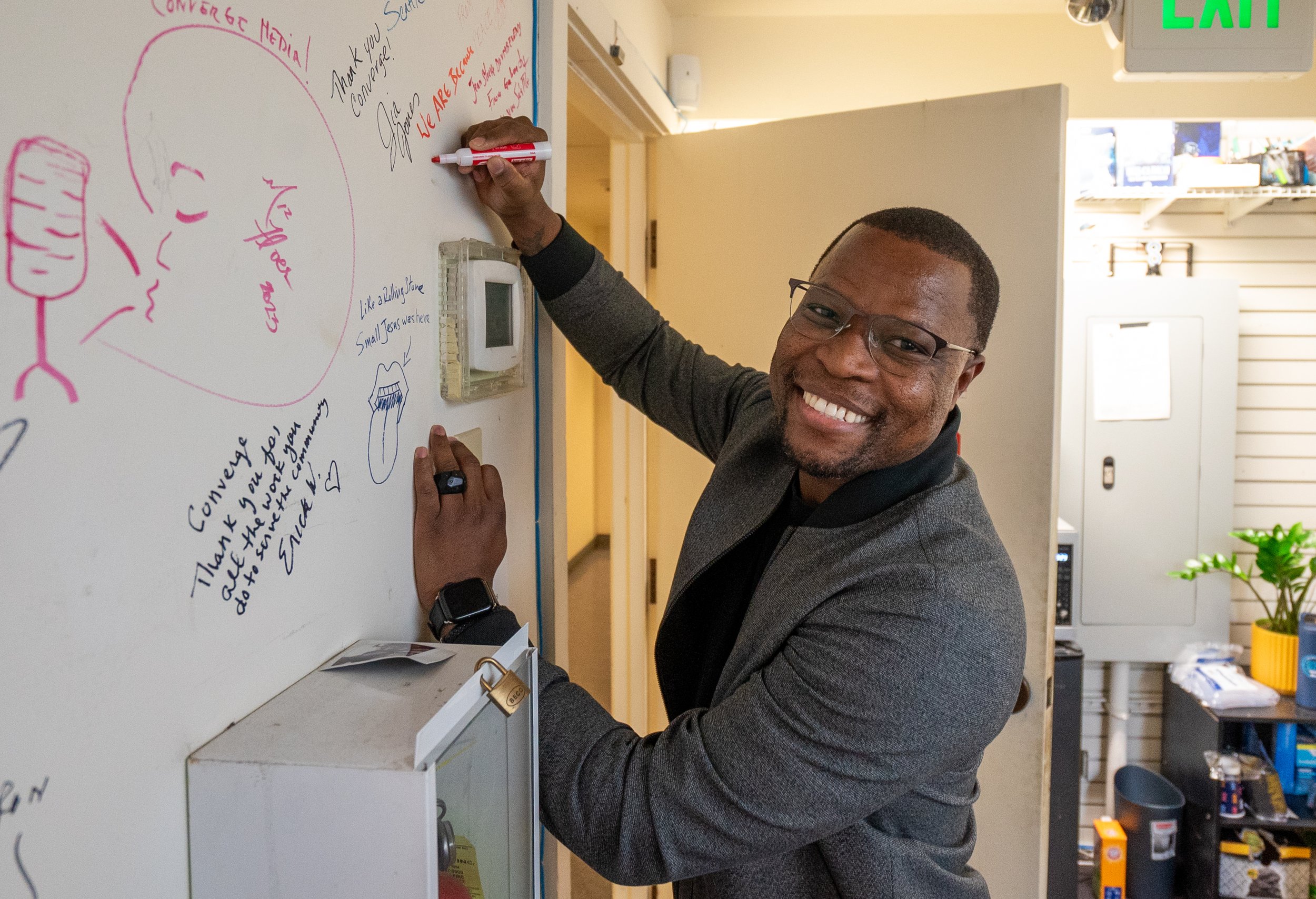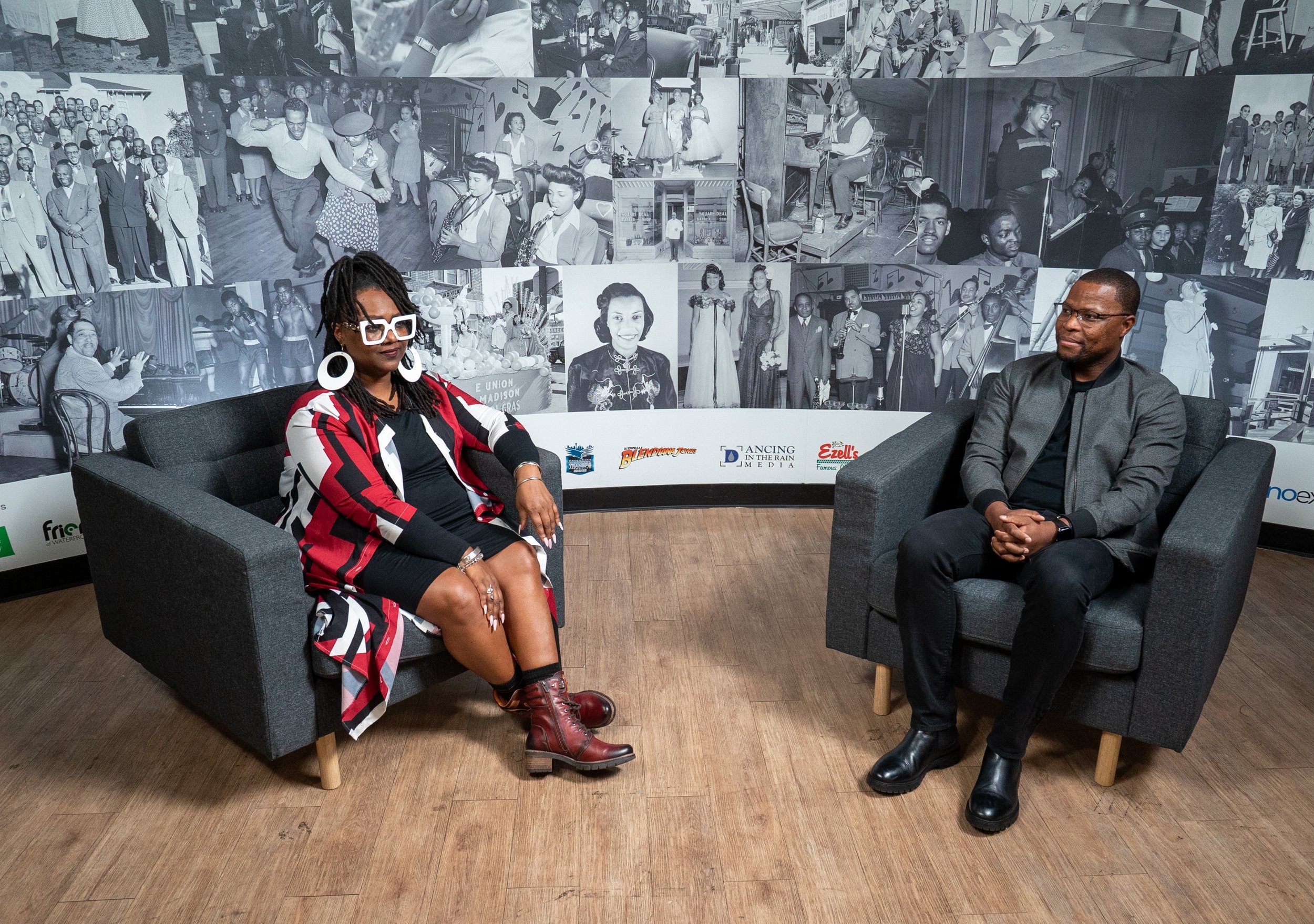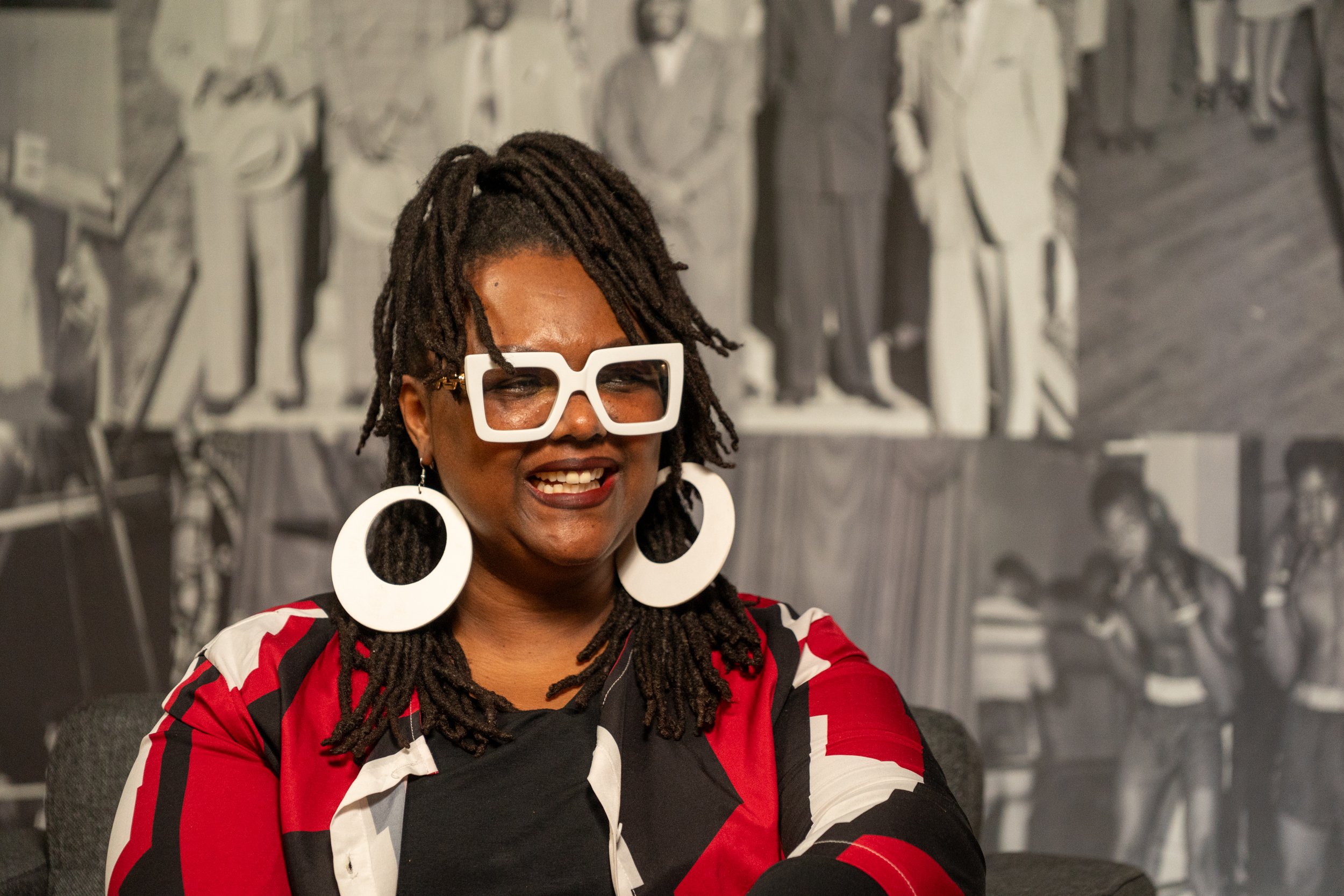Acts on Stage Theatre Presents King X: The Meeting
Photos by Susan Fried
Watch the full interviews below
This Wednesday on The Day With Trae, host Trae Holiday welcomed director and co-founder of Acts on Stage Theatre, Isiah Anderson Jr., alongside Moses Masith, one of the stars in Anderson's production, "King X: The Meeting." This theatrical showcase delves into a fictionalized conversation between two iconic figures, Malcolm X and Martin Luther King Jr. Holiday and Anderson discuss the creative journey behind the play's inception while Masith shares his journey in bringing Dr. King to life on stage.
"About 30 years ago, somebody said to me, "Hey, man, it'd be nice if you and Carl Mack were to do The Meeting," Anderson said, a play created by Jeff Stetson. "And, of course, it never happened. And now, 30-plus years later, in my theater Acts on Stage, I get to do just that."
Anderson founded the Acts on Stage Theatre alongside Michelle Lang-Raymond. This upcoming show explores the hypothetical dialogue between two historical figures, offering insight into what they would have discussed and how their interaction may have unfolded.
"I get to dive into and give people an inside look at Martin and Malcolm. What would they have said to each other? How would they have responded to each other," Anderson said. "We know how social media, what the world wanted us to think about the two of them, right? But what would they have said? So this is that, and we have a good time doing it."
Masith will play King alongside Sean Goode, who portrays Malcolm X.
"When Michelle and Isiah asked me to do this role, I was pretty excited simply because of the people that asked me to do it," Masith said. "Following that was like, "Well, I get to portray Dr. King." That's a big deal. So I couldn't say no to that."
Anderson conveyed the process of choosing Masith to portray King.
"Moses brings a definite perspective from South Africa. I believe he has this knowledge of "Wait a minute, we were dealing with a Mandela thing. And you guys were dealing with a Martin thing," and then how it tied in," Anderson said. "Moses doesn't say a lot, but when he says something, you go, "Mhh, feel unfair that you kept that from. It's just really powerful."
Masith described his approach in crafting his portrayal, detailing the process behind his performance.
"You have to find your own unique things about him [King]. For me, it's been two things. One is Dr. King's commitment to this idea of nonviolence; secondly is his commitment to the human. He was a very human-centric person," Masith said. "It mattered to him, for instance, to act as a man before he was a political activist. It mattered to him that the people that he encountered were human before they were anything else."
Masith highlighted that playing the Civil Rights leader brought up strong emotions about his experiences growing up in South Africa.
"There's a portion where Dr. King speaks about the first March he ever led, and he takes us down memory lane about what that looked like. I grew up in South Africa at a time when the country was very transitional, an era of a lot of marches," Masith said. "I was kicked out of university because I led a protest march. So there's things that to me that become very traumatic."
Masith's experience portraying King allowed him to develop his characterization of the man, finding both contrasts and similarities between him and Malcolm X.
"I think Dr. King was incredibly radical. In reading about him and studying who he was, the ideas he held for the time he was in were extremely radical," Masith said. "Even in this fictionalized conversation, there is a realization between the two that though they hold polar opposite ideologies, by the end of the conversation, they were, in fact, not that opposite of one another. They were both radicals in different ways."
This radicalism, at least for Masith, was showcased in his treatment of others.
"To love another person to the point where you want to humanize them. It's a radical act. There's a line that the playwright covers very well where King says that nonviolence is not something he does because he likes it," Masith said. "He does it because it's right. It's a way of God, as it were, that invites people to participate in in being more humane than they ever were. So, to recognize him as radical is something very essential."
To ensure an authentic portrayal of the dialogue and themes depicted in the play, Anderson explains his dedication to the production's success by actively seeking insights from others.
"I don't ever want to take on the perspective that I know what was what and how things are thought of," Anderson said. "I'm always reaching out and getting insight from others so that I can better portray what we need to see."
This production will be playing from the first of March until March 10th. Tickets are available here.
"You get to participate in a reimagining of a fictionalized conversation between X and Dr. King, really something that many of us feel like we were shortchanged from," Masith said. "Not only is this a historical moment, it's a moment to participate in current social issues, for you to offer social commentary and become a part of that. Bring your ideologies to the table; bring your philosophies to the table. They are all welcome because we are in the space of collaborative conversations."
To hear more stories about performing arts and culture in Seattle, join us live with Trae every weekday at 11 am on Converge Media platforms and The Day With Trae YouTube Channel.













